In the intricate dance of relationships, one often forgets the fundamental partner in the journey – oneself.

Why Is Self-love Important In A Relationship?
Exploring the profound significance of self-love within the context of a relationship unveils a crucial narrative – understanding the role of self-love in relationships is not just a casual exploration but a critical and significant aspect that contributes to the broader understanding the connection between self-love and healthy connections with others.
And this introspective exploration not only enriches your well-being but forms the cornerstone of a resilient and fulfilling connection with others.
Join me on this exploration of why cultivating self-love is an essential ingredient in the recipe for a thriving relationship.
We can begin right away!
Note: Although I am a Clinical Social Worker, engaging with this website does not establish a professional social worker-client relationship. The information provided here is for general purposes only and should not be considered professional advice. While we strive to ensure accuracy and reliability, this content is not a substitute for professional guidance. For specific concerns, issues, or situations, it is essential to consult a qualified professional and present your situation. Read the full Disclaimer here.
This post has affiliate links which means that we make a commission from qualifying purchases at no additional cost to you. For more information read our Affiliate disclosure.
WHY SELF-LOVE IS IMPORTANT IN RELATIONSHIPS

Self-love can be extremely important in any type of relationship, whether in intimate partnerships, friendships, or professional relations.
However, you should know that loving yourself less usually doesn’t make you a worse partner, especially if you’re more of a people-pleaser.
Quite the contrary: if you are, you’re probably doing too much, but the question here for you is: are you getting what you need? Are you on the receiving end of a relationship? (You’re getting some emotional needs met even if you’re focused only on giving, but you need to ask yourself if this is truly enough.)
So as you can see, I’m going against the popular misconception that you can’t love or that nobody can love you if you don’t love yourself.
This isn’t true, and it’s harmful to send this kind of message to people who are trying to heal, as it’s not their fault that they struggle with loving and accepting themselves.
You can absolutely love others while you’re healing, and they can love you.
Moreover, they may even love you more because you’re just a human who is finding their way and place in this world just like them. Just like we all do.
So do not get discouraged or believe that you shouldn’t be in a relationship before you love yourself.
You don’t have to be if you feel more comfortable being single while you’re growing, healing, or recovering. But you shouldn’t shy away from love if you feel that you already have or could have something good going on.
You need to remember that we get to know ourselves through relationships with others, so see your partner as a reflection of where you are on your journey and learn what it is that you need, want, or don’t want in a relationship.
HOW SELF-LOVE AFFECTS RELATIONSHIPS
Now let’s talk about how self-love affects relationships and go to our first reason why self-love is important in a relationship.
#1 YOU’RE MORE PROBABLE TO SET COMFORTABLE (FLEXIBLE) BOUNDARIES WHEN YOU LOVE YOURSELF
With well-rounded self-love, it’s easier to set comfortable (flexible) boundaries between you and others. And boundaries are also here for us, so that we keep ourselves accountable for meeting our needs and being disciplined enough not to go below the standards we have for ourselves and our lives.
This reduces the probability of someone being abusive to you, overstepping boundaries, taking advantage of you, and similar. It’s simply because this way both you and they know what you won’t let anyone do to you in relation to you.
Sometimes we need more communication about certain things, and at other times, this will be non-verbal. So keep that in mind, and always try to think about whether you have or haven’t communicated certain expectations or limitations. And be as assertive as possible in doing so to increase the probability of getting the desired outcome (be firm with your request or demand while remaining kind to the person you’re communicating the request or demand to).
This doesn’t mean you are entitled to getting everything you want whenever you want it. I’m talking about finding common ground and mutual understanding.
Just keep in mind that when you are in a situation where you have to repeat yourself over and over again about the unacceptable and hurtful/harmful behaviors of your partner, this is a red flag that you need to pay attention to.

Remember that having set “proper” boundaries may even ensure that some people who are prone to exploiting others bypass you or avoid you. Either as friends, partners, or colleagues. It is not a shield, but it’s pretty effective still. And the more aware you are of your value (worthiness), the more likely you’re to protect it in the best way.
Now, you have to understand that at times, your boundaries may not protect you from wrongdoing, as society is set in its own way unfortunately, as we have lived in patriarchal communities for centuries. This means that you may be more likely to experience “bad” things just because of your gender, skin color, characteristics, choice, lifestyle, opinions, etc. As you can see even more clearly noe, self-love isn’t a shield.
However, when it comes to your choices and decisions you make for your life, self-love can be seen as a form of protection, as you’ll work in your best interest more. Plus, you should hone in on your differences and see them as strengths because a person who is not like you can’t use your voice to express your opinion and explain your position and where you’re coming from the way you can.
This means that you have the power to create a better place for others like you, and you should use this power whenever you can. As a result, this increases self-love even more, as you can clearly see your contributions to making the world a better place, as it always starts with us.
If this motivated you to cultivate more self-love, take a look at a few resources that intendeto support your intention:
Paid link: Self-Love Workbook for Women: Release Self-Doubt, Build Self-Compassion, and Embrace Who You Are (Self-Love Workbook and Journal)
Embrace who you are with this guided self-love book for women of any age and any background. You’ll embark on your journey of self-discovery by learning what self-love is, and then immersing yourself in exercises to help you build your self-esteem and improve or elevate your relationships.
This very successful self-Love workbook created by a fellow Megan Logan, LCSW is designed with a clear intention to empower women on their journey of self-discovery and self-love. So if you like my approach to self-love you’ll probably like this. Because as you’ll see that I always emphasize that to increase self-love we need some practice and consistency.
The self-love workbooks typically include exercises, prompts, and activities that encourage self-reflection, self-compassion, and self-care, in addition to practical tools and strategies for setting boundaries, managing stress and anxiety, and cultivating healthier habits.
By getting a self-love workbook, you’re benefiting from a valuable resource that can empower you to take control of your mental and emotional health, develop a more positive and compassionate relationship with yourself, and in the end, improve your overall well-being.
I’ve collected a few helpful Self-Love Workbooks in my post: The Best Self-Love Workbooks To Help You Finally Break Free From Self-judgement Through Self-Compassion And Self-Acceptance.
You may want to also check out alternatively (or combine the 2 workbooks):
Self-Love Workbook for Black Women: Empowering Exercises to Build Self-Compassion and Nurture Your True Self (Self-Love Workbook and Journal)
As an African American woman, juggling many roles can leave little time for self-care. With this in mind, here’s an empowering self-love and self-care workbook designed to help you prioritize your joy, healing, and growth, with affirmations and exercises that nurture your authentic self.
Embrace self-love, build inner peace, and cultivate confidence while exploring themes of self-compassion and community.
Paid link: The 5-Minute Self-Care Journal for Women: Prompts, Practices, and Affirmations to Prioritize You
This journal offers quick and easy self-care practices to meet your needs amidst a busy life.
It stands out with 150 uplifting prompts promoting growth mindset, mindfulness, and positive intentions.
Spend just 5 minutes on self-love with its effortless questions, affirmations, and actions.
Plus, its user-friendly design makes reflection recording enjoyable.
Paid link: Self-Love Journal for Teen Girls: Prompts and Practices to Inspire Confidence and Celebrate You
If you’re a teen (or get this for your teen if you’re a parent) start the new year by encouraging yourself to embrace self-love and confidence.
The Self-Love Journal for Teen Girls offers affirmations, reflective prompts, and creative activities that can help you understand your emotions and celebrate your uniqueness.
With uplifting quotes and practical exercises, it’s a powerful tool for fostering self-awareness, self-worth, and self-care.
Paid link: A Year of Self-Care: Daily Practices and Inspiration for Caring for Yourself (A Year of Daily Reflections)
This is a 12-week anxiety and self care journal that will help you process what’s occupying your mind and gently re-frame your thoughts, so you can manage your worries before they get to spiral out of control. This could potentially help if you’re feeling anxious even to start self-exploration.
It was designed to meet you where you are and guide you to developing a practice of dedicating a few minutes a day to reflect on your thoughts, detect the sources of your anxiety, and prioritize your overall wellness and mental health. This is dedicating a few minutes to yourself you really need.
It has:
- Daily Journaling Pages
- Self-Care Ideas
- Therapy Reflections
- Emotional Support Cheat Sheet
- Fear-Setting Exercises
- Habit Trackers
- Monthly Progress
Paid link: SELF-LOVE JOURNAL FOR WOMEN: Prompts and Practices for Your Journey to Self-Worth, Self-Care, and Self-Acceptance (Workbook and Journal)
Self-love journals often include prompts for self-care activities and practices. By prioritizing self-care and making it a regular part of your routine, you can nurture your physical, emotional, and mental well-being.
This Self-Love journal includes prompts and practices for taking a path of self-worth, self-care, and self-acceptance.
Women everywhere encounter unrealistic societal expectations that lead to feelings of overwhelm and discontent with themselves. However, discovering the path to self-love and embracing our uniqueness can significantly alter our perspective on life, and this guided journal is designed for just that.
Paid link: SELF-CARE ACTIVITIES FOR WOMEN: 101 PRACTICAL WAYS TO SLOW DOWN AND RECONNECT WITH YOURSELF
Prioritizing well-being is crucial, especially for women who often/usually prioritize others.
“Self-Care Activities for Women” offers a variety of ways to relax and find joy, covering emotional, mental, physical, social, and professional care.
With 101 simple activities, from creating a joy playlist to cooking a healthy meal, this book encourages making time for ourselves and cultivating a habit of self-check-ins.
3 Biggest Mistakes With Self-acceptance
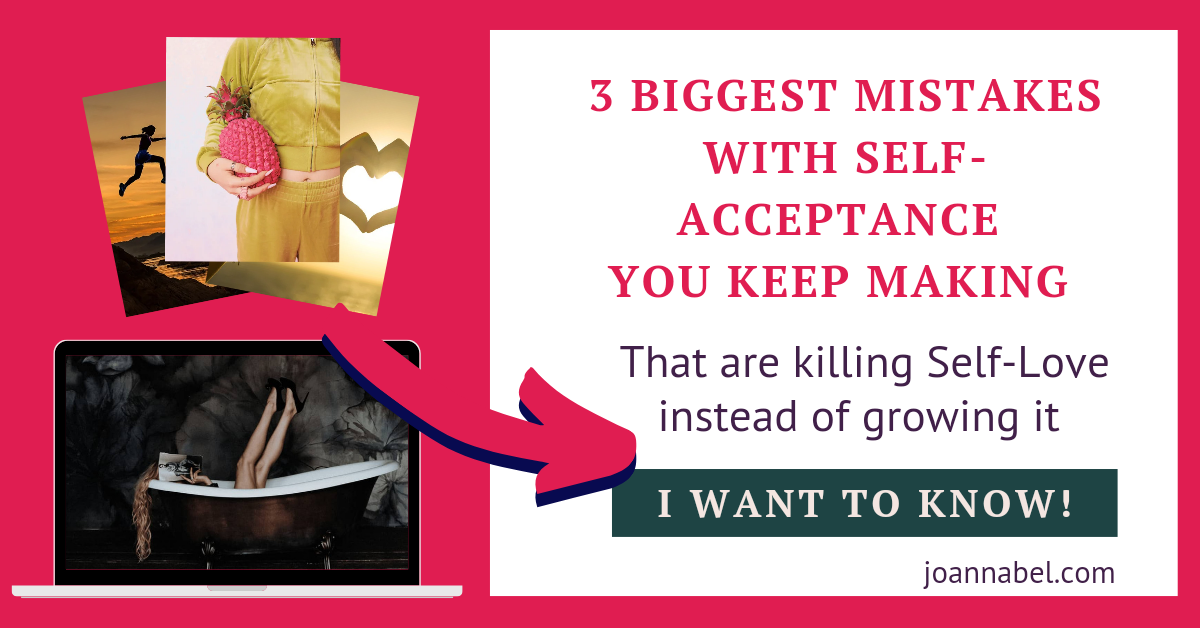
#2 YOU HAVE STRONGER IDENTITY
When your identity is more solidified, you feel better about yourself, about your place in the world, and about your worthiness, so your self-love is more rounded.
With more rounded self-love and a greater sense of your personal worthiness, you’re more aware of what you need as well as what you don’t want or need, so you’ll be more likely to form and have better relationships.
This shouldn’t be understood as “If I don’t love myself, I can’t love others, or they can’t love me,” as I previously mentioned. Or assuming that before you are certain that you love yourself, you should stay away from relationships.
Considering that through these relationships, we:
- get to know ourselves more,
- learn how to be with others,
- have our characteristics reflected back at us, as well as
- evolve, especially if we become more self-aware along the way.
We do have different identities in us as well as different roles, but here I’m talking about a sense of self and about me vs. others. And I’m not talking about excessive individuality, where we “don’t need” anyone to have our needs met.
I’m talking about the process of individuation, where we become distinct from others as we grow up, starting with our parents. So somewhere in-between excessive independence and codependency, where we are stable enough to be on our own while still having the capacity and willingness to connect with others around us, rely on each other, and work together towards common objectives.
So here, self-love is very beneficial, as it helps you find a balance between the extremes. Let me speak in more concrete terms: you free yourself from pleasing everyone around you by only making decisions for your life that they approve of, while at the same time, you have the skills and intelligence to detect when it’s time to include others in your decision-making that affects them as well.
Here, you’re not being too codependent or too independent, as you know what truly has the capacity to endanger your individuality and what doesn’t.
RELATED:
#3 SELF-LOVE BRINGS BALANCED INDEPENDENCE IN RELATIONSHIPS
I feel called to speak a little more about independence here, so I decided to add it as one of the reasons why self-love is important in a relationship.
With more love for yourself comes more balanced independence, because more self-love means more self-esteem, and more self-esteem means less dependence on others, their help, or their approval, and less codependency that can make you lose yourself in your relationships.
This is important because nobody should carry the baggage of being your only source of satisfaction or happiness.
And this happens to people when they overlook their personal development and jump to dependence on external factors, including relationships, partners, work, kids, etc.
It sure looks easier to do it like that now, but later in life, this choice can become your imprisonment.
Also, the more balanced your independence is, the more space you’ll give your kids to have rising and evolving independence and autonomy as they grow. Then you’ll have much better relationships with them.

Now, we need to talk about the other side of the coin. The excessive independence that I briefly discussed.
Excessive independence is usually a coping mechanism, just like codependency, and it’s not your fault if you had to rely on yourself while growing up. You’ll probably have an avoidant attachment if this is so, or you may have a partner who is like this, and you may be more codependent, for example. Take it as it resonates.
Now, even though it’s not your fault that you’re too independent/codependent and have trouble relying on others or being truly open with them, it is your (and/or your partner’s) responsibility to begin changing your pattern of relating or attaching if you want to have a meaningful relationship where both of you feel secure and comfortable.
This doesn’t mean to become someone else. It means to make a decision to change and adapt in terms of becoming more willing to give up some of your independence by trusting that the other person won’t take advantage of this and will meet your needs as you express them.
You are not the child who had to rely only on themselves to meet their emotional needs any more. And as an adult, you have much more power and control to manage your relationships and your outer world than was the case when you were a small child.
So it is safer for you now to begin leaving the excessive independence and fully engaging in a relationship where you can expect to be heard and understood.
When you start loving yourself more, you are likely to give yourself permission to expect your needs to be met, express your truth, and be more engaged in your relationships.
RELATED:
3 Biggest Mistakes With Self-acceptance

#4 YOU’RE BEING MORE OPEN ABOUT YOUR NEEDS AND DESIRES WHEN YOU ACCEPT AND LOVE YOURSELF
As we just talked about this, it’s a good idea to expand on it a little. So if you lack self-love, you’ may have trouble recognizing your needs or asking that they be met, as you are not used to this, and you may feel like this is too much to ask.
On the other hand, you might even believe that this is even a question of pride for you, where you don’t need anything from anyone or you need so little because you’re strong and unbreakable.
Don’t get me wrong. Resilience is great, and it’s good to be strong to endure hardships in life, but that doesn’t mean that wanting and needing things in life is excessive and selfish.
If you feel like it is, this may be an indicator of trauma, where you’re accustomed to not having enough and not receiving what you need, so now you have a hard time attaining this.
At the same time, it may happen that you are meeting your needs, but you don’t go for what you truly desire in life, as usually we’re not taught how to do so.
We often don’t know how to differentiate our true desires from social expectations, or we aren’t accustomed to stepping out of our zone of comfort to set bold goals, as any failure is defined as something bad and shameful by society.
If you focus on self-love, you’ll experience more bravery to both confront social pressure and ditch the stigma around failure so that you can see it as just one of your attempts to go for what you truly want and get it.
Would you rather be a go-getter or someone who does everything that’s expected of them at the expense of never getting what you really want?
At the same time, the nurturing nature of self-love will help you deal with trauma if it stands in the way of you meeting your needs and following your desires.
#5 SELF-LOVE COMES WITH LESS PEOPLE PLEASING + WITHDRAWAL OR RIGIDITY + HIGH-MAINTENANCE
Behind both people-pleasing and rigid behavior lies the fear that we won’t get what we need and want if we’re open about it. So these are protective mechanisms adopted while we were young, as we needed to adapt to our environment to have our needs met in some way.
When we are rigid and very demanding, behind it may lie the belief that unless we put in a lot of effort and pressure, there’s little to no chance that others will meet us where we are.
If you’re too demanding, this may actually be the case (which may suggest that no one can live up to your expectations), and your assignment here is to allow others to have their needs met as well and not see it as an endangerment or threat to your needs being met.
If, on the other hand, you’re not too demanding but are fearful that unless you do whatever you can to get someone to respond the way you desire, they won’t, then what’s important for you is to work on detaching and letting others decide to meet you where you are, or don’t, but without this having to determine your value.
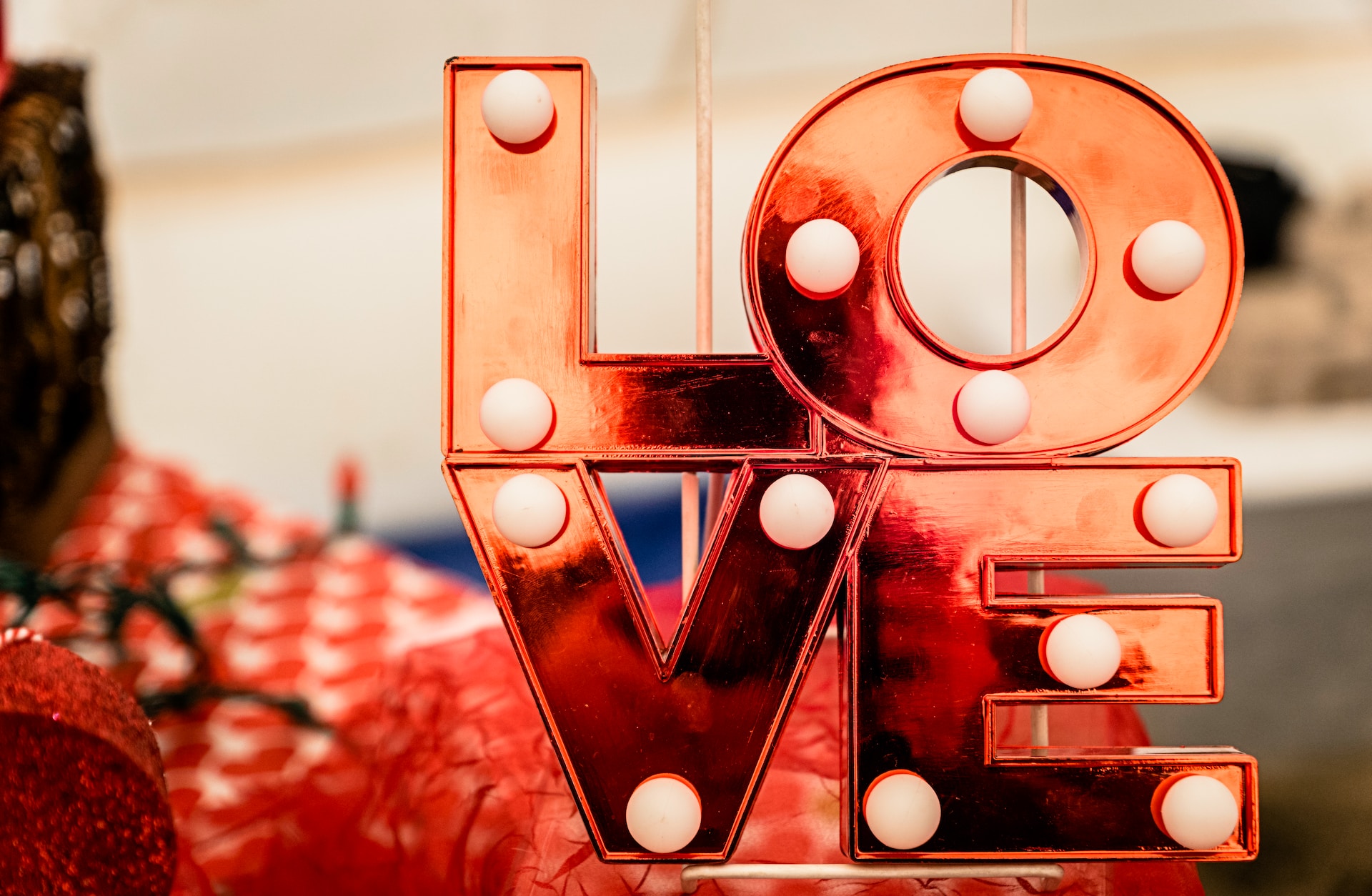
Let’s talk about people-pleasing tendencies now. Maybe you’re putting yourself last because that’s what you’re used to, or maybe you’re trying to prevent the hurt if you were to ask to be the priority and then have someone let you down.
It’s ok to put someone else’s needs before yours if it’s clear that the situation asks for this, as people in your life can experience hardships or challenges that prevent them from being able to reciprocate your efforts. But if this is a habit for you, then that’s something to look into.
It’s important to look behind our intentions and see what it is that we fear that makes us act as if it’s not important if we don’t get what we really want or need.
And if we begin seeing ourselves worthy of receiving attention, affection, or anything else, then we can start asking for what we really want and need with less hesitation or withdrawal.
Self-love is helpful here, as when we accept and love ourselves enough to allow good things and things we deserve, as opposed to settling for what we can get no matter how small it is.
If you found the information on the blog helpful & inspirational and you feel like giving back, you can do it by clicking the donate button after entering amount you’re comfortable with. I’ll use it to create and deliver more useful content and resources like this. Thanks for your precious contribution!
Read also:
- The Best Self-Love Gifts For Friends Having A Hard Time Cultivating It (Or You)
- Elevate Self-Love: Things To Buy For Adults Online (13)
- The Best 10 Personal Growth Journals That Will Inspire You To Move Forward
- 39 Life-changing Self-love Questions to Ask Yourself Right Now
- 100 Things To Love About Yourself Always
- 100 Reasons To Love LOVE Yourself + 1 That Will Surprise You
- Love Yourself: List of 41 Things To Do For Self-love
#6 MORE SELF-LOVE MEANS BETTER DECISION-MAKING AND CHOICES
When I say better decision-making, I don’t just mean you become better at making decisions, like being more determined or asking for less approval and advice from others.
What I also mean is acting in your best interest, naturally, not at the expense of others (like their well-being).
When there’s some struggle with self-love, we tend to be more prone to self-sabotage, as what may lie beneath are beliefs we have about ourselves or the world in general, so then we unconsciously tend to reaffirm those beliefs and keep feeling like we always felt as we are accustomed to it.
(We all self-sabotage as we are more comfortable with feeling as we always feel, but I’m talking about the repeating cycles regarding making similar decisions here that get you to notice there’s something you should probably change.)
It’s simply familiar, and unfortunately, as humans, we are drawn to familiarity, but the good news is that we can choose a different path.
We can go against our urges and choose the unfamiliar, as what comes out on the other side might just be everything we want.
What is familiar feels safe, but it usually isn’t, as this keeps us in the same place. And when we don’t want to be in that place, this isn’t really safe anymore, right?
You have to sit down and analyze whether the choices and decisions you tend to make have the potential to get you where you want to be. If the answer is no, or most often no, then it’s time to do the inventory and look for patterns.
See where you want to be and whether your choices, habits, and behaviors can get you there or if you need to make some shifts.
If you focus on self-love, what will come into play here is your self-worth, self-exploration and self-discovery, self-acceptance, and self-esteem.
And the more you get in touch with these areas, the more chance you get to make better decisions for your life, like choosing the right partner for yourself, expressing yourself authentically, focusing your purpose in life, having a healthier lifestyle, etc.
You know how they say: Become the partner you want to attract. This doesn’t mean you have to become this perfect individual before you get the “right” partner, as I mentioned earlier. The point is to be better for yourself and for others.
#7 YOU FEEL MORE COMFORTABLE IN YOUR SKIN WHEN YOU LOVE YOURSELF
More self-love is linked to feeling more comfortable in your skin, but I’m not talking about physical looks, as, for instance, our obsession with having “the perfect” body may be a signal of us not being okay with who we are unless we fit the fabricated social standards of good looks.
I’m talking about not being ashamed of who we really are, and this has a lot to do with our experiences growing up in a family, community, and society. For many people their growing up was full of shaming and restriction.
On top of this, what was common for most of us while we were growing up is the lack of opportunity to participate in decision-making about things that affected our lives as children and adolescents, at least to some extent. And this caused us not to feel comfortable or competent enough in certain areas of life. This creates the feeling of being an imposter.
That’s because most of the time children are in a position to have to behave like recipients of interventions from adults in their lives and are rarely seen and treated as equals—someone whose voice equally matters and who has the capacity to make good choices for their lives.
So as we got this message that we’re not competent or entitled to our own opinion, it became harder and harder to trust ourselves and to be confident in our own skin.
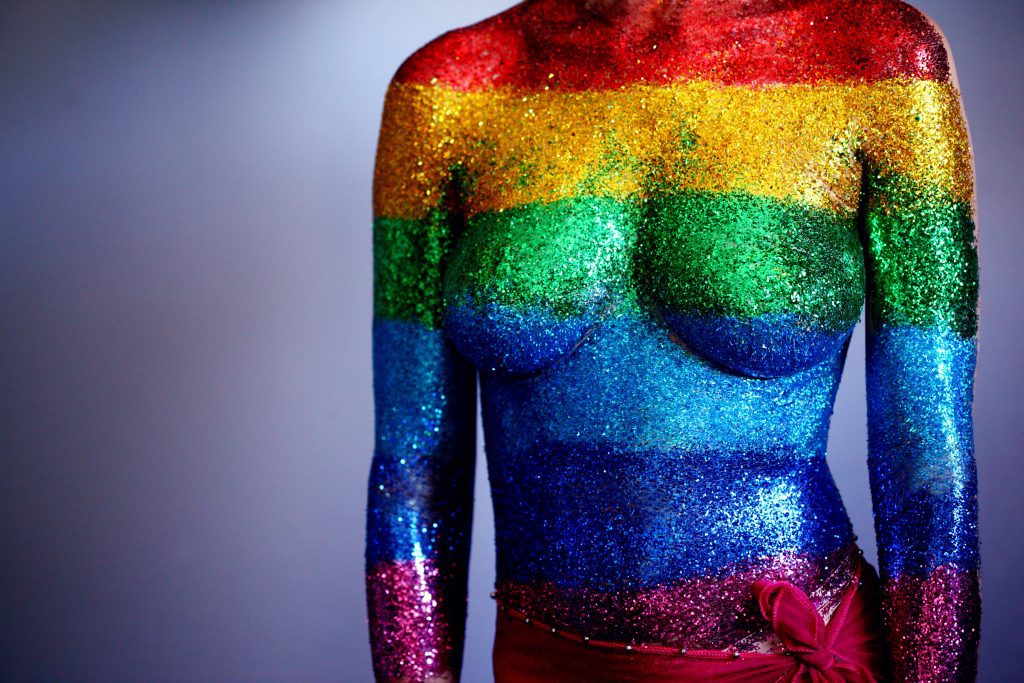
And if we add standards of “good behavior” for girls and women and “manly” behavior for boys, skin color, body shape and size, and other fabricated social standards that serve as controlling mechanisms or instruments for engaging us in consumerism where we need to buy more and more stuff to try to attune to these standards, then it may feel almost impossible to feel good in your skin.
But this doesn’t have to be the case as long as we decide not to engage in these toxic influences (any longer) and focus on our true essence and what we bring to the table in this world.
Even if you do feel shameful of yourself (of who you really are) most of the time, it’s possible to move past this over time by honing in on self-discovery, self-acceptance, understating your worth, and self-love.
If you know what you bring to the table, you’ll feel more comfortable standing up for yourself in your relationships. But not only that, you’ll be more free to show who you truly are, speak more openly about what you really need and want and don’t want, negotiate more and be less offensive or defensive with others as you’ll be more self-assured and secure.
SELF-LOVE RESOURCES
Self-love resources are tools, materials, or support systems designed to help you develop a positive relationship with yourself by learning about yourself and knowing yourself better, enhancing self-esteem, and cultivating a sense of self-worth.
I have several blog posts that feature different self-love resources that you can check out:
- THE BEST BOOKS FOR SELF-LOVE AND HEALING (19) FOR UNLEASHING SELF-LOVE
- THE BEST 14 SELF-LOVE JOURNALS TO BREAK FREE FROM UNNECESSARY RESTRICTIONS
- THE BEST 12 SELF-LOVE WORKBOOKS FOR BREAKING FREE FROM SELF-JUDGEMENT THROUGH SELF-COMPASSION AND SELF-ACCEPTANCE
- 7 SELF-LOVE JOURNALS FOR WOMEN (TRANSFORM YOUR LIFE THROUGH EMPOWERMENT)
- 11 SELF-LOVE POETRY BOOKS: LOVE, LINE BY LINE THROUGH POETIC PROSE
- 9 SELF-LOVE GAMES FOR ADULTS TO TRY AND POWER-UP YOUR WELL-BEING
- THE BEST SELF-ESTEEM JOURNALS AND WORKBOOKS FOR ADULTS (7) TO TRANSFORM SELF-PERCEPTION
- SELF-LOVE THINGS TO BUY FOR ADULTS ONLINE (13) TO ELEVATE LOVE FOR YOURSELF
- GOOD SELF-LOVE GIFTS: 12 GIFT IDEAS FOR SOUL NOURISHING
- THE BEST 8 SELF-LOVE GIFTS FOR FRIENDS HAVING A HARD TIME WITH IT (OR YOU)
Latest Posts:
- Simple Safety Measures To Protect Your Family

- The Biggest Benefits Of Adopting A Dog For Your Family (5)

- How To Turn Crafting Into Family Fun Time (6 Ideas)

- Creative Ways To Play With Kids Without Technology

- How To Make Gift-Giving More Special For Kids (4 Ideas)

- How To Do A Prenup Online (What To Expect)

FINAL THOUGHTS ON WHY SELF-LOVE IS IMPORTANT IN A RELATIONSHIP
It’s evident that nurturing a profound connection with oneself is not just an act of personal empowerment, but a gift to the shared journey of partnership.
In embracing self-love, we create a resilient foundation, fostering understanding, compassion, and authenticity in our relationships.
And remember, by first cherishing the relationship with yourself, you unlock the capacity to genuinely cherish others, weaving a tapestry of love that stands resilient in the face of life’s challenges.
I hope you found this exploration on why self-love is important in a relationship helpful and I’ll see you in my next post! Here’s one:

3 Biggest Mistakes With Self-acceptance

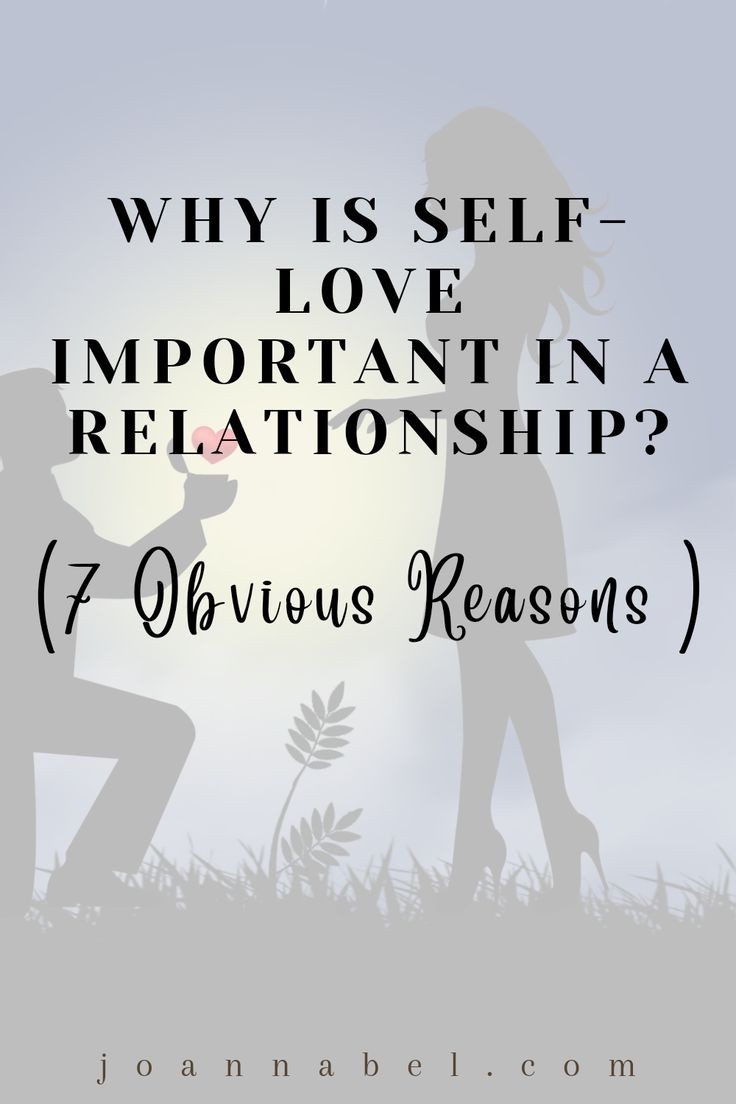
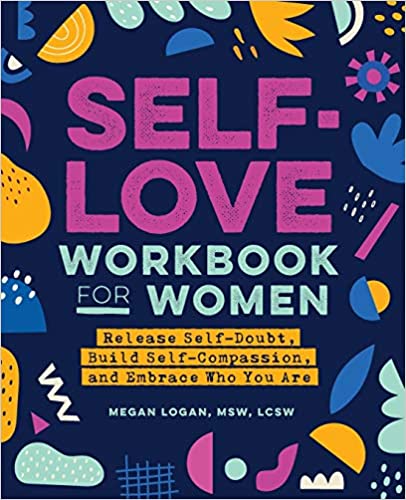
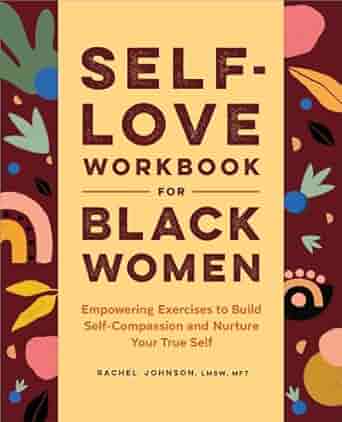
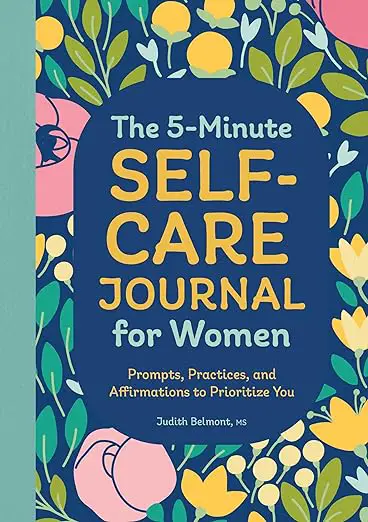
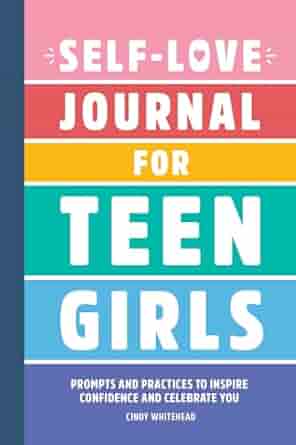
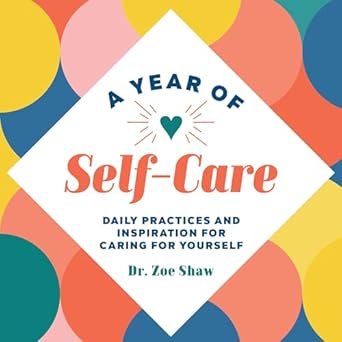
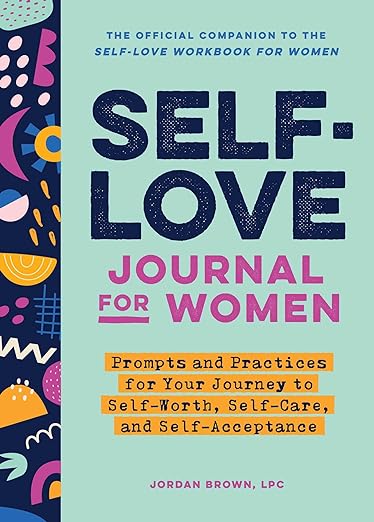
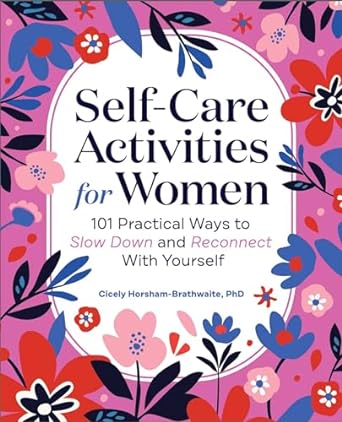







Leave a Reply